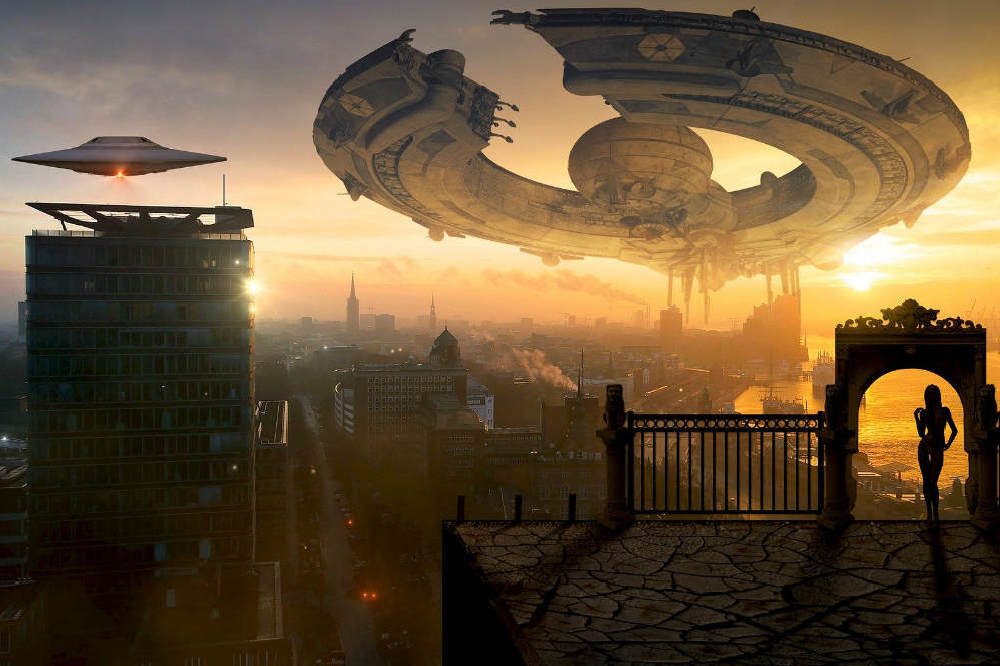In honour of National Science Fiction Day, we are exploring some of the most iconic sci-fi novels and their authors in history, including the indomitable Isaac Asimov who shares his birthday with this US national observance.

Photo Credit: Pixabay
Frankenstein by Mary Shelley (1818)
The result of a competition between Mary, her future husband Percy B. Shelley and Lord Byron about who could write the best horror story. It's safe to say that Mary not only won, but managed to invent the genre of science fiction while creating one of the most iconic characters of all time: Frankenstein's monster. Plus, it's an important and timeless story about what it is to be human.
Journey to the Center of the Earth by Jules Verne (1864)
He's one of the godfathers of science fiction having written 54 novels as part of his Voyages extraordinaires series, including Journey to the Center of the Earth. It follows the story of a professor and his nephew who journey into an Icelandic volcano, through volcanic tunnels encountering prehistoric beasts and other obstacles, and eventually re-surfacing in Italy.
The War of the Worlds by H. G. Wells (1898)
We can't express how pleased we were at how well the recent BBC miniseries was adapted from this classic book, unlike the 2005 Steven Spielberg film. It perfectly encapsulated the invasion quality of the story, leaving you with the stark reminder that the British have not been unlike the Martians of War of the Worlds over the course of history.
Brave New World by Aldous Huxley (1932)
Probably one of the most unsettling dystopian thrillers of all time alongside George Orwell's 1984, Brave New World is all a single civilisation on one planet which is largely concerned with the practise of eugenics, indoctrination and geniocracy. As the world becomes ever more advanced in its technologies, it's no wonder the relevance of this story remains.
Foundation by Isaac Asimov (1951)
As one of the three most iconic science fiction writers of his time, Isaac Asimov wrote the Foundation series of books which is all about a futuristic Galactic Empire and the propensity that furthering our knowledge has in determining the future of civilisation. It's fascinating in its idea that if one gains knowledge of predicted events, their actions towards changing or maintaining it become unpredictable.
The Day of the Triffids by John Wyndham (1951)
It's a story that divides opinion because most people think it's just about a load of people going blind and being eaten by carnivorous plants from outer space (which, frankly, it is), but it's far more than that. It's a simple idea but the themes within the book largely centre on survival, partnership and what happens when power is left to only those who can see.
Dune by Frank Herbert (1965)
If you loved the 1984 film adaptation by David Lynch, we can pretty much guarantee you'll love the book more. It's another story about civilisation in space, but focuses on a feudal system of government and is largely set within a desert wasteland of a planet called Arrakis, which is the home of but one valuable resource; a substance capable of increasing mental prowess and life expectancy.
Do Androids Dream of Electric Sheep? by Philip K. Dick (1968)
This one may be familiar as it's basis for 1982's Blade Runner. We have a post-apocalyptic world ravaged by nuclear war with off-world colonies featuring highly advanced androids who, despite being very similar to humans in many ways including being made of organic matter, are treated as second-class citizens. You're left with the baffling question: What is it that makes us truly human?
Snow Crash by Neal Stephenson (1992)
Neal Stephenson grew up with science all around him, so it's no wonder that he became fascinated by various scientific subjects in his lifetime; enough to inspire him to write several stunning masterpieces. Snow Crash was his third novel and remains one of his most popular, tying themes of programming and neurology with that of Sumerian history and archaeology, and even gives a re-interpretation of the Tower of Babel.
Tagged in Sci Fi

